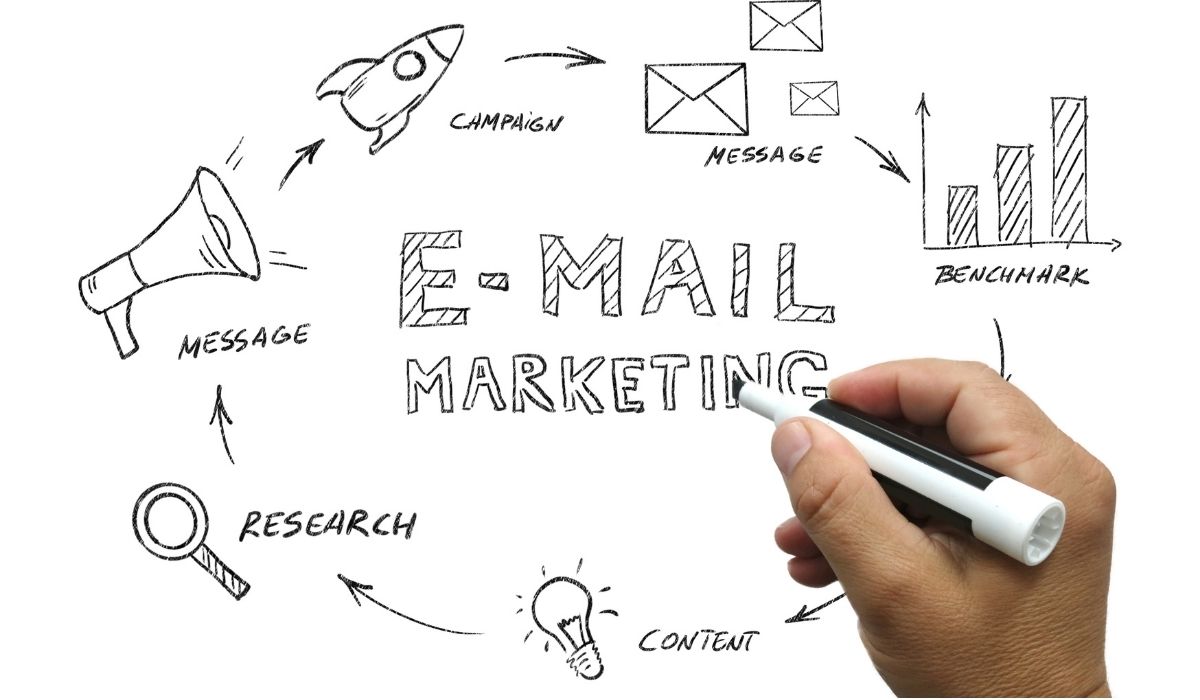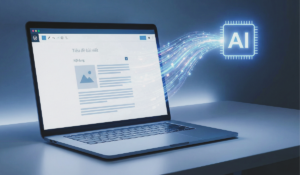Email marketing remains one of the most powerful digital marketing tools available, offering unmatched ROI, direct communication with your audience, and opportunities to build lasting relationships with customers.
However, the success of any email campaign hinges on one critical factor—content.
Email marketing content services focus on crafting engaging, personalized, and persuasive messages that not only capture attention but also drive conversions.
In today’s crowded inbox environment, businesses need more than just well-written words—they need strategic storytelling, targeted messaging, and value-driven communication.
In this guide, we’ll break down how professional email marketing content services can help you create campaigns that consistently deliver results.
Why Email Marketing Content Matters
Statistics show that for every $1 spent on email marketing, businesses can expect an average return of $36–$42. But this ROI isn’t automatic—it depends heavily on the quality and relevance of the content.
Great email content:
- Captures attention in a busy inbox.
- Delivers value that resonates with the recipient.
- Guides action with a clear and compelling call-to-action (CTA).
- Builds trust and loyalty over time.
Without strong content, even the most sophisticated automation tools or beautifully designed templates will fall flat.
What Email Marketing Content Services Include
When you invest in professional content services for your email campaigns, you get more than just copywriting.
You receive a comprehensive approach that blends creativity, strategy, and data. Common services include:
a) Strategy Development
- Defining campaign goals (sales, engagement, awareness, retention).
- Understanding your audience personas and segmentation.
- Planning content themes and email cadence.
b) Copywriting and Storytelling
- Crafting attention-grabbing subject lines.
- Writing clear, benefit-focused email body copy.
- Building brand consistency through tone and style.
c) Personalization and Segmentation
- Creating content tailored to specific customer segments.
- Using behavioral triggers and past purchase data to send relevant messages.
d) Design Collaboration
- Working alongside designers to ensure copy fits perfectly with visuals.
- Suggesting layout strategies that improve readability and clicks.
e) Automation Workflow Content
- Developing sequences for welcome series, abandoned cart reminders, and post-purchase follow-ups.
f) Performance Tracking
- Analyzing open rates, click-through rates, and conversions.
- Optimizing future campaigns based on insights.
The Anatomy of a High-Converting Email
A successful email is the result of multiple carefully crafted elements working together:
1. Subject Line
The first and most critical element. If your subject line doesn’t entice a click, your content won’t even be seen. Effective subject lines are short, clear, and curiosity-driven, often incorporating personalization.
Example: “Vikash, your exclusive offer expires tonight 🚀”
2. Preheader Text
A quick preview that complements the subject line and adds more incentive to open.
Example: “Claim your bonus before midnight—limited spots available.”
3. Header & Visuals
An eye-catching header image or headline that reinforces your message immediately.
4. Body Copy
Concise yet persuasive, focusing on benefits over features. Break up text with bullet points and short paragraphs to maintain readability.
5. Call-to-Action (CTA)
Clear, action-oriented, and easy to spot. Instead of “Click Here,” try “Get My Free Guide” or “Unlock My Discount.”
6. Personalization
Adding the recipient’s name, location, or tailored recommendations increases engagement.

Types of Email Campaigns That Benefit from Professional Content Services
Different email types require different strategies and tones. Professional content services ensure your messaging is adapted for each type:
- Welcome Emails – Set the tone, introduce your brand, and offer a special incentive.
- Promotional Emails – Drive sales with offers, discounts, and product launches.
- Abandoned Cart Emails – Recover lost revenue by reminding customers of their pending purchases.
- Newsletter Emails – Provide value with educational or entertaining content to nurture relationships.
- Re-Engagement Emails – Win back inactive subscribers with personalized incentives.
- Transactional Emails – Order confirmations, shipping updates, and follow-ups can also carry subtle upsell opportunities.
Personalization: The Game-Changer in Conversions
One-size-fits-all email blasts no longer work.
Customers expect emails that feel tailored to them.
This is where personalization strategies transform results:
- Dynamic Content: Show different content blocks depending on user preferences or past actions.
- Behavior-Based Triggers: Send relevant messages when a user performs a specific action (e.g., visiting a product page).
- Name and Location Personalization: Using the subscriber’s details to build familiarity.
- AI-Powered Recommendations: Suggest products or services based on browsing or purchase history.
According to Experian, personalized emails deliver 6x higher transaction rates.
How to Create Email Content That Converts
Step 1: Know Your Audience
Start with detailed customer personas—understand their goals, challenges, and buying motivations.
Step 2: Offer Value First
People subscribe because they expect benefits—exclusive deals, insider knowledge, or entertainment.
Step 3: Master the Subject Line
Test variations, use action words, and add urgency or curiosity.
Step 4: Keep It Scannable
Most people skim emails. Use bold headings, bullet points, and short paragraphs.
Step 5: Align Copy with the Funnel Stage
- Awareness stage → Educational and value-driven emails.
- Consideration stage → Product benefits, comparisons, and testimonials.
- Decision stage → Discounts, urgency, and limited-time offers.
Step 6: Always Include a CTA
Make it easy for readers to take the next step, whether it’s buying, signing up, or reading more.
Measuring Success and Optimizing Campaigns
Without tracking performance, you can’t improve your results. Key metrics to monitor include:
- Open Rate: Indicates subject line effectiveness.
- Click-Through Rate (CTR): Measures how well your content and CTAs perform.
- Conversion Rate: Shows if the email is achieving its ultimate goal.
- Bounce Rate: Helps you maintain a clean email list.
- Unsubscribe Rate: Reveals if your content is missing the mark.
Professional content services regularly analyze these metrics, test new approaches, and refine messaging for better performance.
Benefits of Hiring Professional Email Marketing Content Services
- Saves Time: Delegating content creation frees you to focus on other areas of your business.
- Ensures Consistency: Every email aligns with your brand voice and goals.
- Leverages Expertise: Professionals know how to blend creativity with proven marketing tactics.
- Boosts ROI: Strategic content directly impacts conversions and customer retention.
The Future of Email Marketing Content
Email marketing is evolving with AI-powered personalization, interactive elements, and integration with social media. The future will likely see:
- Hyper-personalized journeys with real-time dynamic content.
- Interactive features like polls, quizzes, and embedded videos.
- Better automation tools that make personalization at scale easier.
By partnering with experienced email marketing content specialists, businesses can stay ahead of trends while keeping the human touch that builds trust.
Conclusion
Email marketing content services are more than just writing emails—they are about building relationships, nurturing trust, and driving consistent conversions.
Whether you’re launching a new product, re-engaging dormant customers, or keeping your audience informed, the right content strategy can turn your email list into a revenue powerhouse.
In the competitive digital landscape, compelling, targeted, and value-packed email content isn’t just an advantage—it’s a necessity.
Businesses that invest in professional content creation will not only enjoy higher open and click-through rates but will also create deeper customer loyalty and long-term growth.
FAQs
What are email marketing content services?
Email marketing content services involve the creation, optimization, and strategy development for email campaigns. This includes writing subject lines, crafting persuasive body copy, designing effective CTAs, segmenting audiences, and analyzing performance to maximize engagement and conversions.
Why should I hire a professional for email marketing content?
Professionals bring expertise in copywriting, marketing psychology, and data-driven strategies. They know how to write content that resonates with your audience, increase open rates, improve click-through rates, and ultimately drive more sales.
How do email marketing content services improve conversion rates?
These services focus on personalization, compelling storytelling, and strategic messaging. By targeting the right audience with relevant content, they encourage readers to take action—whether it’s making a purchase, signing up for a webinar, or downloading a resource.
Can email content be customized for different audience segments?
Yes. A core part of email marketing is segmentation—grouping subscribers based on demographics, behavior, or interests. Customized content for each segment increases engagement and makes your emails more relevant.
What’s the difference between promotional and informational emails?
- Promotional emails aim to drive immediate sales or conversions (discounts, product launches, special offers).
- Informational emails provide value without directly selling, such as newsletters, tips, or industry insights, which help nurture relationships.
A balanced strategy usually includes both.
How important is the subject line in email marketing?
The subject line is critical—it’s the first thing recipients see and determines whether they open your email. A strong, curiosity-driven subject line can significantly increase open rates.
How often should I send marketing emails?
The ideal frequency depends on your audience, industry, and goals. For many businesses, once a week or biweekly is effective. The key is consistency without overwhelming subscribers.
Can email marketing content services help with automation?
Yes. Professionals can create content for automated workflows like welcome sequences, abandoned cart reminders, post-purchase follow-ups, and re-engagement campaigns—ensuring your brand stays connected with customers at every stage.
How do I know if my email campaigns are successful?
Success is measured through metrics like open rates, click-through rates (CTR), conversion rates, bounce rates, and unsubscribe rates. A good content service provider will track and report these numbers, then adjust strategy as needed.
Are email marketing services suitable for small businesses?
Absolutely. Email marketing is one of the most cost-effective digital marketing channels, making it perfect for small businesses. With the right content strategy, even a small email list can generate significant returns.




